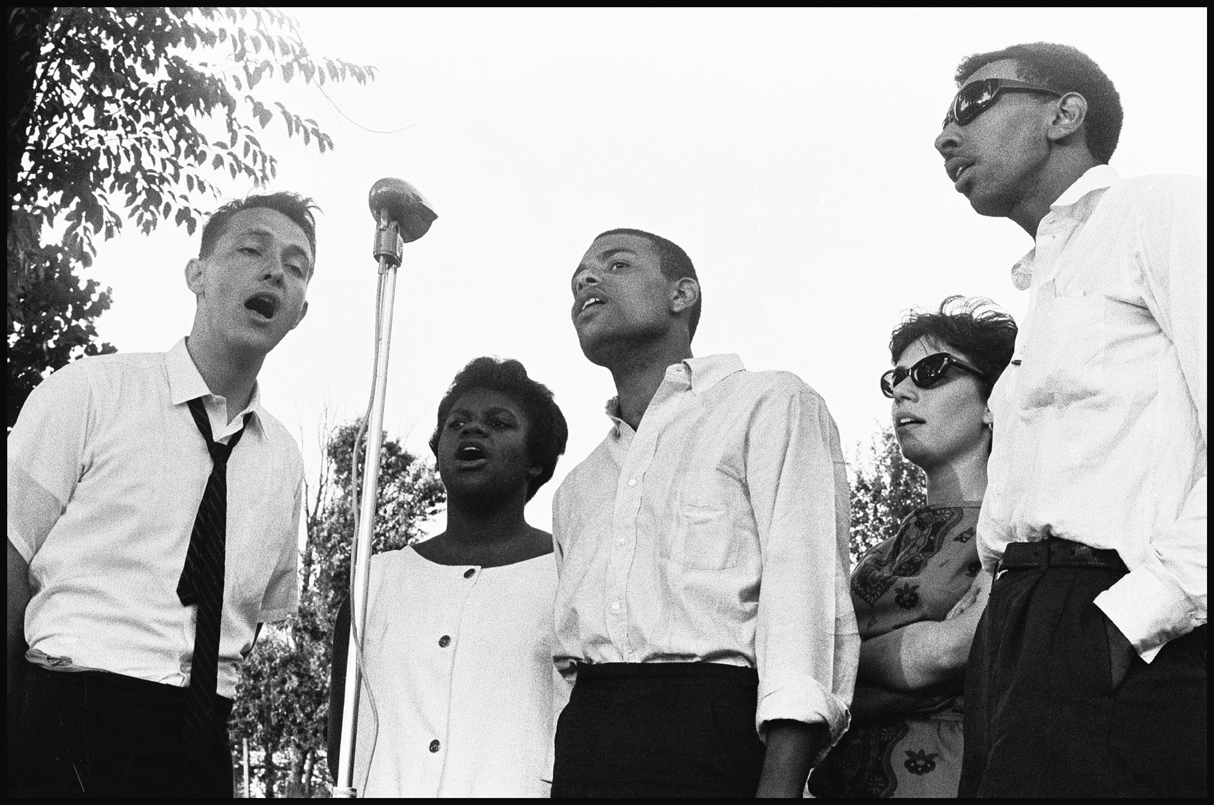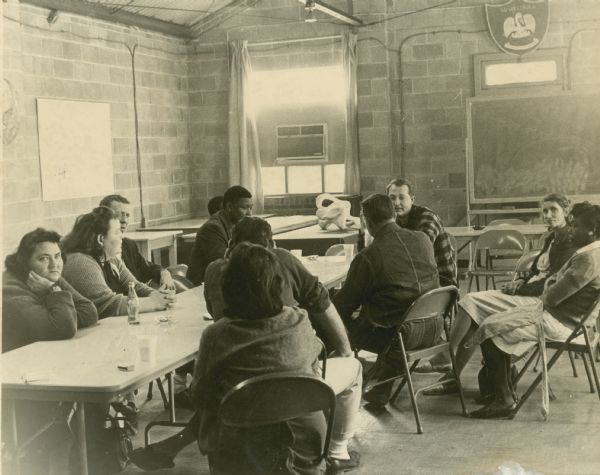Bob Zellner
April 5, 1939 –
Raised in Alabama

Bob Zellner, Winter 1963-1964, Danny Lyon, Memories of the Southern Civil Rights Movement 18, Bleakbeauty.com
“Nigger-loving motherf***ing Jew communist queer Goddamn Yankee from New York City,” were the words used to describe Bob Zellner as a mob of white people descended upon him with chains, bricks, lead pipes, and baseball bats on October 4, 1961, in McComb, Mississippi. Students from McComb’s Burgland High School had staged a march in response to the the expulsion of Brenda Travis who had been arrested for sitting-in at the Trailways bus station. Bob Zellner was white. That made him a special target for the mob that greeted young Black protesters.
Zellner was SNCC’s first white field secretary. He was not just white, but from Alabama, and his father and grandfather had been members of the Ku Klux Klan. As the son of a Methodist minister, Zellner’s interest in civil rights was rooted in his religious faith. When his father broke away from the Klan, his mother made Sunday school shirts from the white robes.
While attending Huntingdon College in Montgomery, Alabama–an all-white Methodist school–Zellner was given a sociology assignment to research solutions to racial problems in the South. Zellner and four other students (later known as the “Huntingdon Five”) outraged school authorities, however, when they began attending civil rights meetings with Black students from what was then Alabama State College for Negroes. It was at these meetings that Zellner met SNCC members for the first time. “I had met church people strong in faith, but until then I had never seen such a dedicated soldiers,” he remembered.

Bob Zellner, Bernice Reagon, Cordell Reagon, Dottie Miller (Zellner), and Avon Rollins singing in Danville, Virginia, June 1963, Danny Lyon, Memories of the Southern Civil Rights Movement 66, Bleakbeauty.com
This campus activism caused Anne Braden to contact him. “You’re going to love SNCC,” she told him. Shortly, Zeller wound up being hired by SNCC to conduct outreach to Southern whites. The first week he entered the office in Atlanta, SNCC’s then executive director, Ed King, told him to answer the phone and left to return to school. Jim Forman arrived a week later with a tape recorder. “I want to know everything about you, man, from the time you were born till right now.” He did not quite trust Zellner, a white southerner. Forman said that he “hoped [his] story holds up.”
Zellner understood that the Civil Rights Movement belonged to young Black southerners, but he was also “fighting for [his] own rights as well…I was joining the movement to establish my own right to fight for what I believed in.”

James Forman and Bob and Dottie Miller (Zellner) in Danville, Virginia, 1963, Memories of the Southern Civil Rights Movement 177, Bleakbeauty.comd
His commitment to the Movement was continually, and often violently, tested by white supremacists. More than once, Zellner was beaten into unconsciousness. He suffered brain damage and post traumatic stress from the physical abuse inflicted upon him. During the protests in McComb, a person attempted to pull out his eyeballs.
In 1962, Zellner organized workshops on nonviolence for students at Talladega College in Alabama, preparing students for lunch counter sit-ins and marches. In 1963, he helped integrate the library and lunch counters in the segregated mill town of Danville, Virginia, the last capitol of the Confederacy. During 1964 Mississippi Freedom Summer, Zellner coordinated volunteers and the Freedom Schools in Greenwood, Mississippi. His race proved to be useful for SNCC as he forged connections with powerful whites in rural communities that were sympathetic to their organizing.

Robert Zellner, in a plaid shirt, conducts a GROW workshop with workers in Laurel, Mississippi, undated, Dorothy M. and Robert Zellner Papers, WHS
The rising sentiment in 1965 that whites should organize among whites challenged Zellner. He never felt any “personal animosity from Stokely or any of the old hands, but [he] did feel it from some of the newer people.” When he and his wife Dorothy “Dottie” Zellner presented the proposal for a “GROW” (Grassroots Organizing Work) project, it was turned down. It was painful. “SNCC was our life. It was our existence…It was like being cast into outer darkness, because SNCC was our family in a very strong sense.”
Zellner eventually joined SCEF and help lay the groundwork for GROW there. He later moved to Wilson, North Carolina. During the summer of 2013, Zellner was arrested with North Carolina Forward Together Movement for protesting voter suppression and continued to work closely with North Carolina’s Moral Mondays Movement.
Sources
James Forman, The Making of Black Revolutionaries (Seattle: University of Washington Press, 1997).
Bob Zellner, The Wrong Side of Murder Creek (Montgomery: New South Books, 2008).




